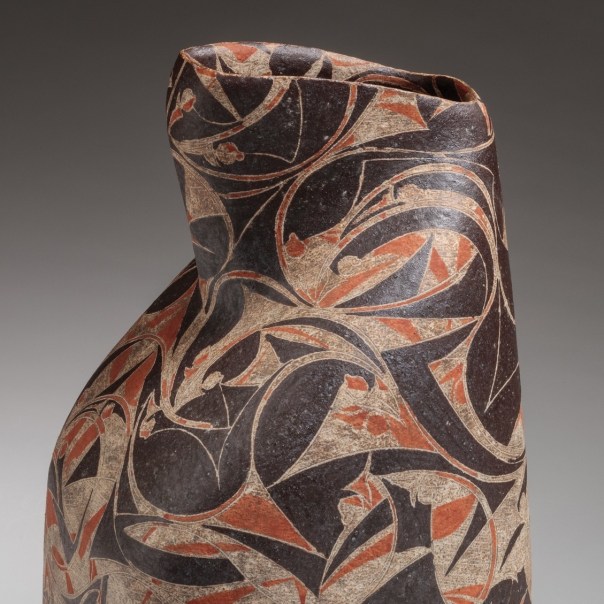
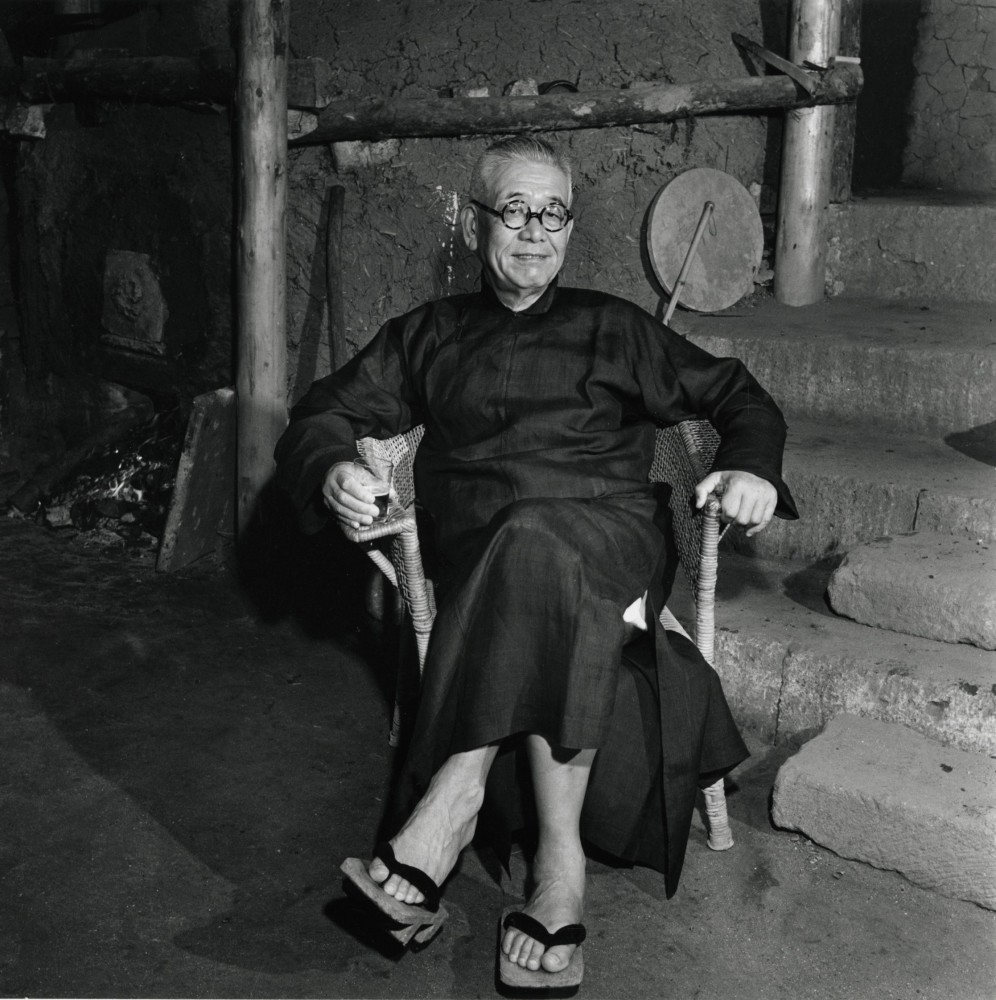
Photograph by Isamu Noguchi ©The Isamu Noguchi Foundation and Garden Museum, New York / ARS – JASPAR
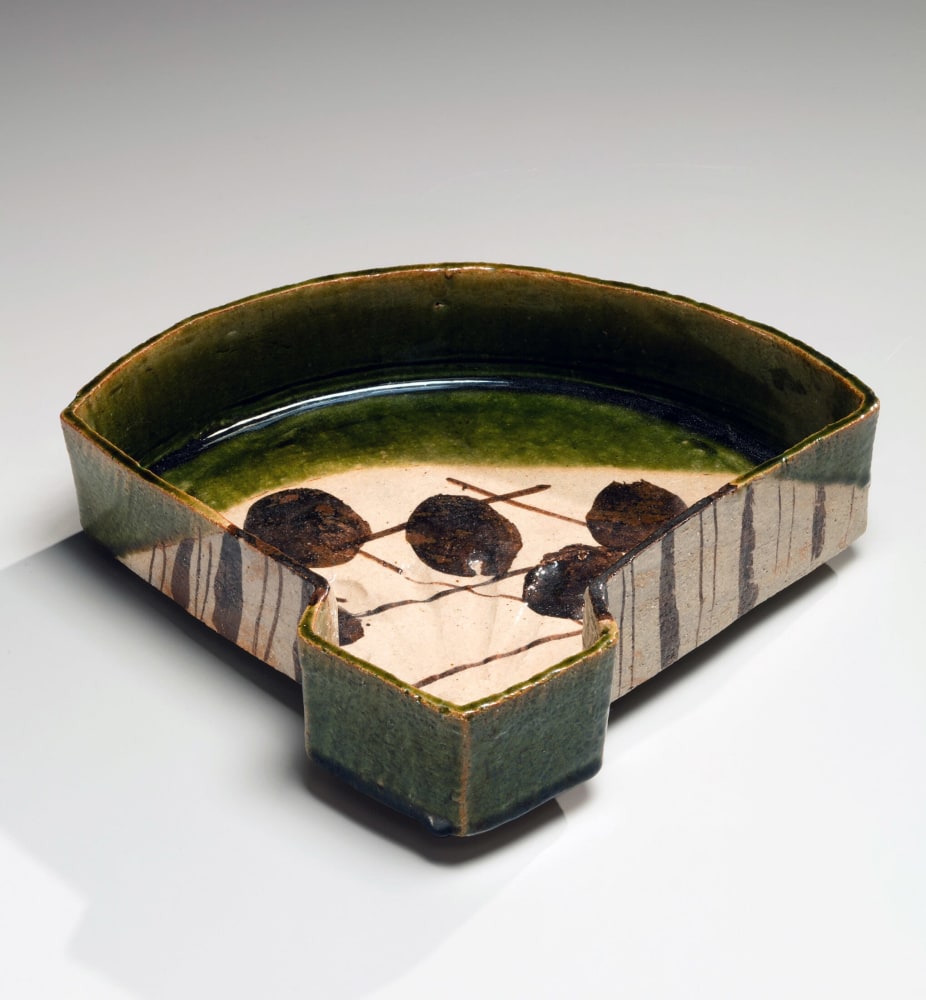
(1883-1959)
Master of an enormous range of glazes, KITAŌJI ROSANJIN produced superb functional vessels and tableware in stoneware and porcelain that were used in his celebrated and exclusive eating club in Tokyo. In addition to ceramics, he also painted, created lacquerware, carved seals, and practiced calligraphy. A friend of Noguchi Isamu, Rosanjin traveled to the US and Europe towards the end of his life, where his work was already receiving broad recognition. When selected in 1955 as Living National Treasure for his mastery of Oribe, he indignantly declined the honor, as Arakawa Toyozō, his former apprentice, had already been selected for Shino ceramics. Worldwide, Rosanjin is the best-known Japanese ceramist of the twentieth century.
Without extraordinary ideas there can be no extraordinary results.
ROSANJIN
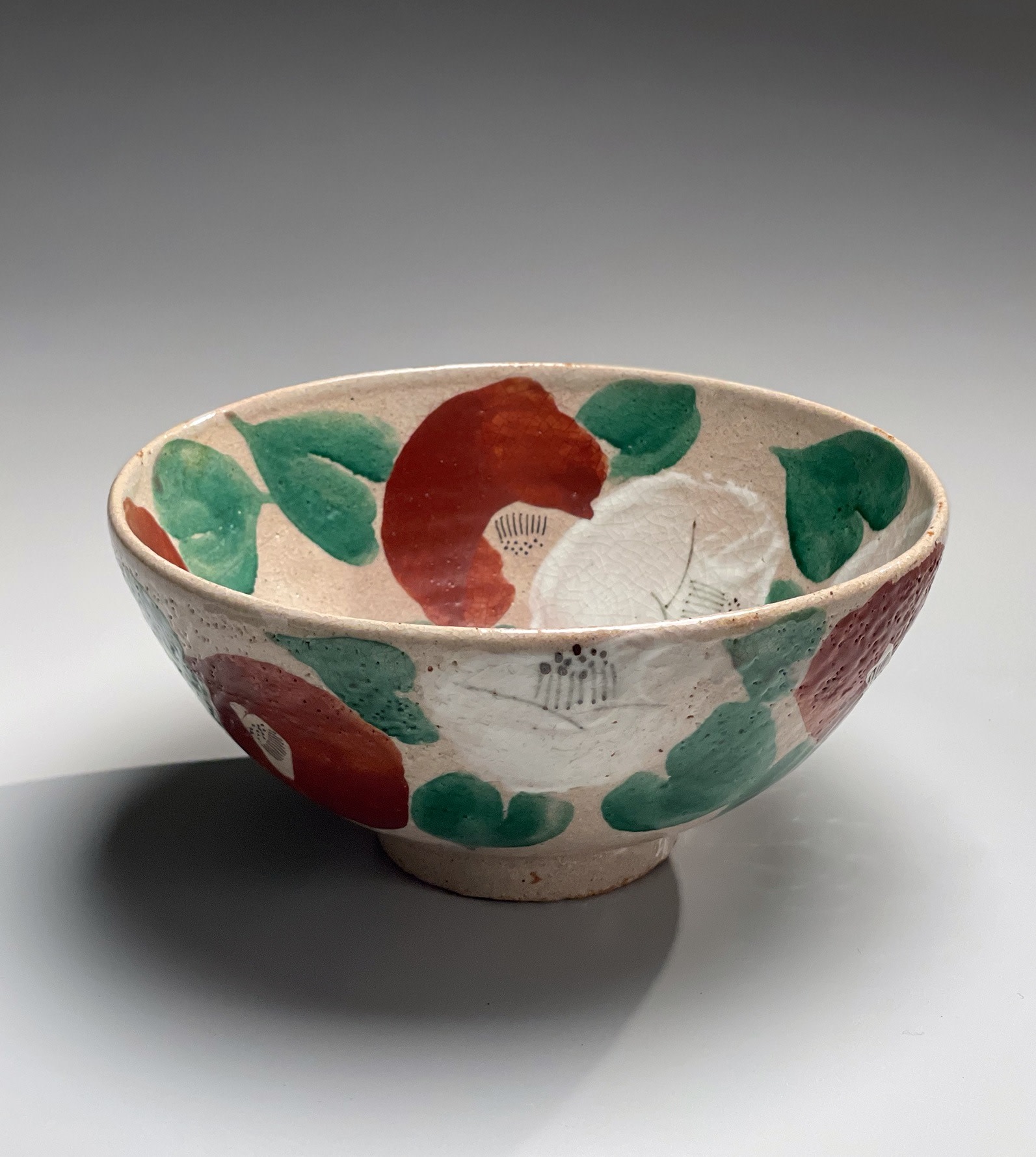
1883 Born in Kamigamo to the north of Kyoto, the second son of a Shinto priest
1895 Inspired by the work of Takeuchi Seihō, aspired to become a painter
1899 Became a painter of the then-popular Western-style signboards; studies calligraphy
1903 Settled in Tokyo
1907 Became an independent calligrapher under the name Fukuda Ōtei
1915 Succeeded to the Kitaōji name and started pottery making
1919 Began antique appraisal business with Nakamura Takeshiro
1921 Inaugurated hugely successful Tokyo membership-based eating club
1922 Changed his name to Kitaōji Rosanjin (meaning “foolish mountain man”)
1924 Started working with ceramic artist Arakawa Toyozō
1925 Opened Hoshigaoka restaurant near Hie Shrine in Tokyo as manager and chief chef
1926 Established kiln for Hoshigaoka in Kamakura with Arakawa Toyozō as director
1930 Arakawa discovered an old kiln in Mino conducting research financed by Rosanjin
1936 Left restaurant to focus on ceramics
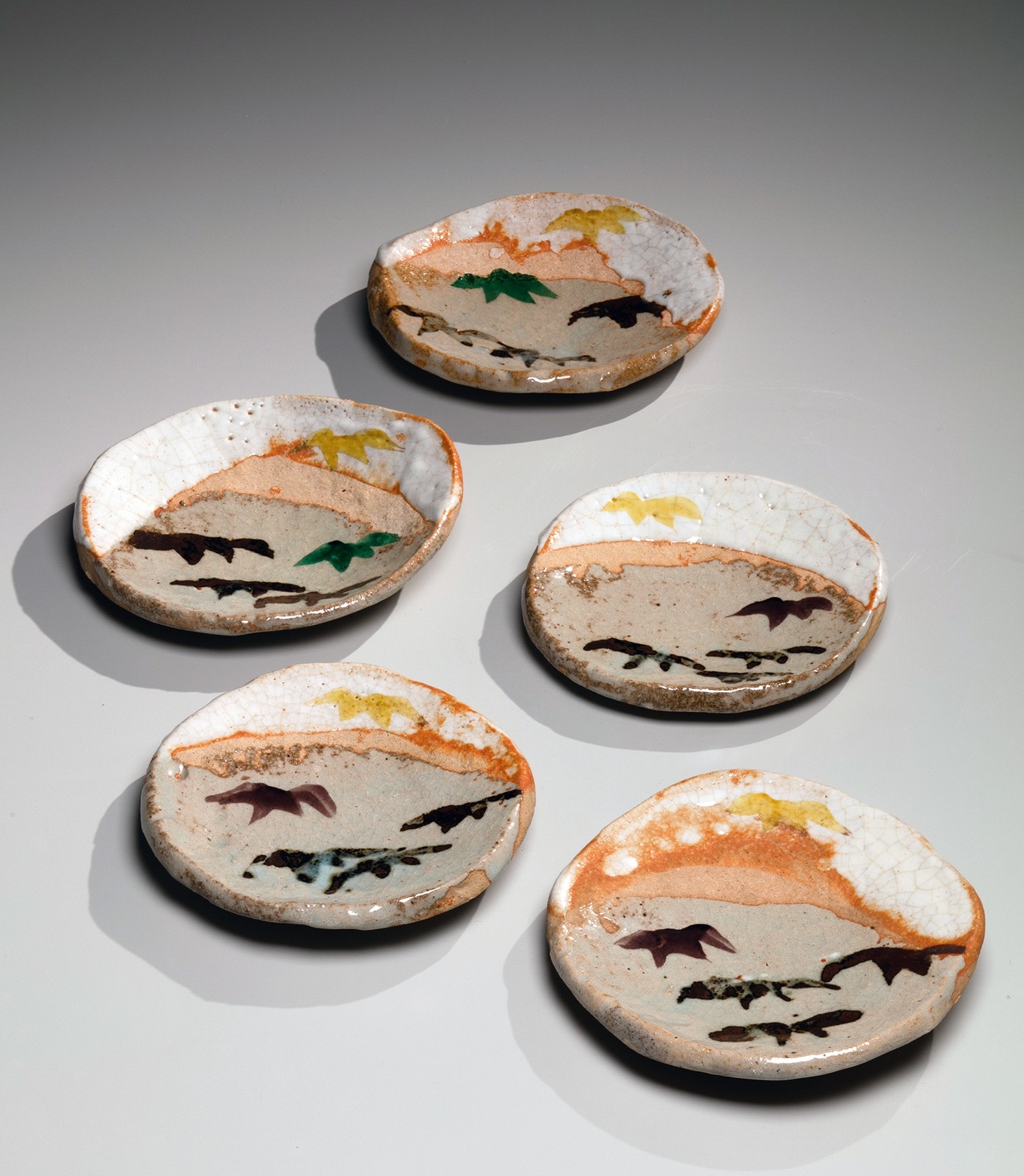
1940-43 In addition to pottery, began to produce paintings and lacquerware
1949 Visited Bizen potter Kaneshige Tōyō with Noguchi Isamu
1951 Noguchi and his wife moved next door to Rosanjin in Yamazaki and set up studio at Rosanjin’s invitation. Selected to exhibit in Exhibition of Modern Japanese Pottery, Musée Cernuschi, Paris; the exhibition traveled to Vallauris, where work attracted the attention of Pablo Picasso
1952 Began producing Bizen style pottery
1953 Mrs. John D. Rockefeller III visited Rosanjin in Yamazaki
1954 Visited the US and Europe with 200 works at invitation of Rockefeller Foundation Exhibition held at the Museum of Modern Art, New York, presenting some 250 works. Lectured at Museum of Modern Art and other museums; and donated works. The exhibition traveled to London, Paris, and Rome. Met Picasso and Chagall in Vallauris
1955 Offered and declined the designation of Living National Treasure for Oribe glaze
1959 Died at the age of 76
Countless posthumous exhibitions throughout Japan through to the present